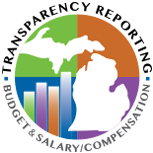Non-Homestead Operating Millage
Is this a new tax? NO. This proposal is a renewal of the non-primary residence property tax last approved by voters in 2014. The term requested for the renewal is ten (10) years.
Will property taxes on my primary residence go up if this passes? No. Your primary residence tax rate will remain the same. In fact, for both homeowners and businesses alike, nothing will change: homeowners don’t pay this tax and businesses will simply continue paying it.
Why is there a request for 0.5 additional mill? Districts often request additional mills to create a buffer when the full 18 mills are reduced by the Headlee Amendment. At no point can a school district levy more than 18 mills, but your approval of the additional mill ensures our students will always receive the full foundation allowance allowed by law.
What would happen if this doesn’t pass? If not approved, Thornapple Kellogg Schools would lose more than $3.8 million per year from our general operating fund. There is no other way to receive these dollars except by voter approval and renewal. Losing these funds would have a major impact on the quality of the educational programming offered to our students.

